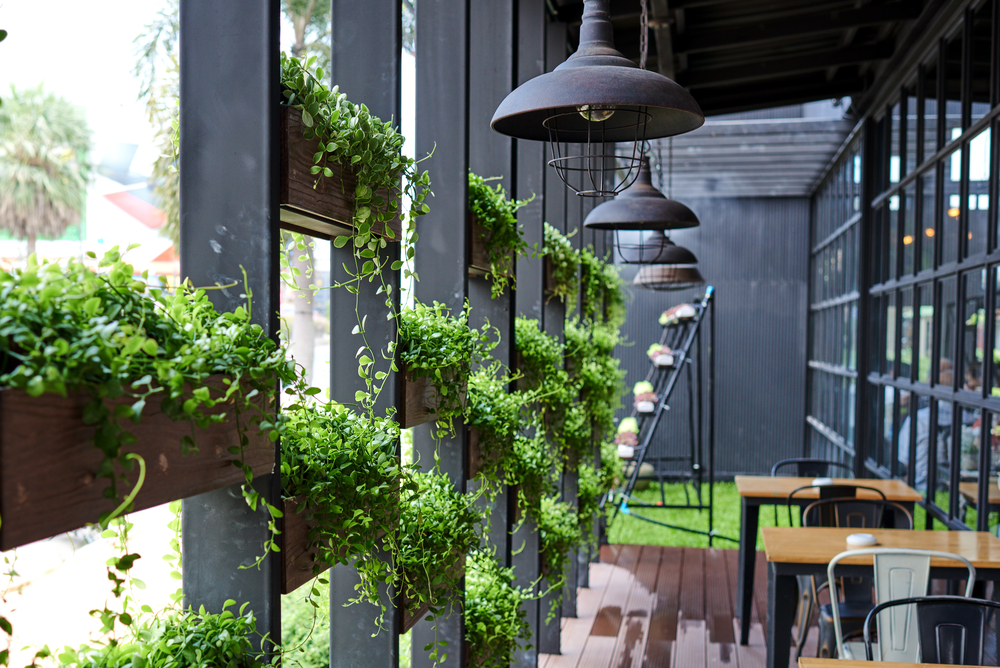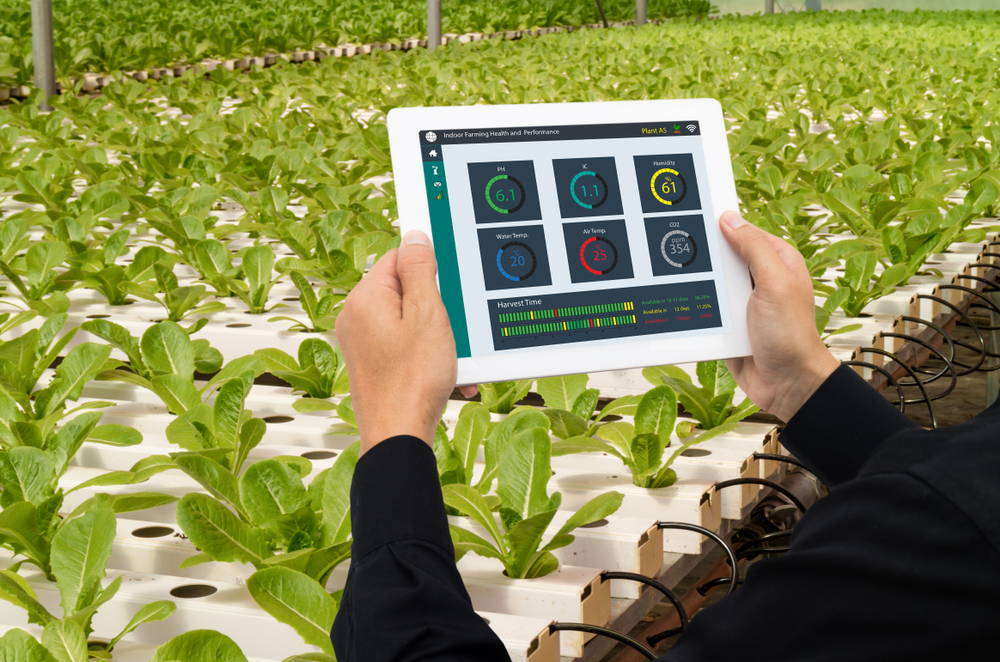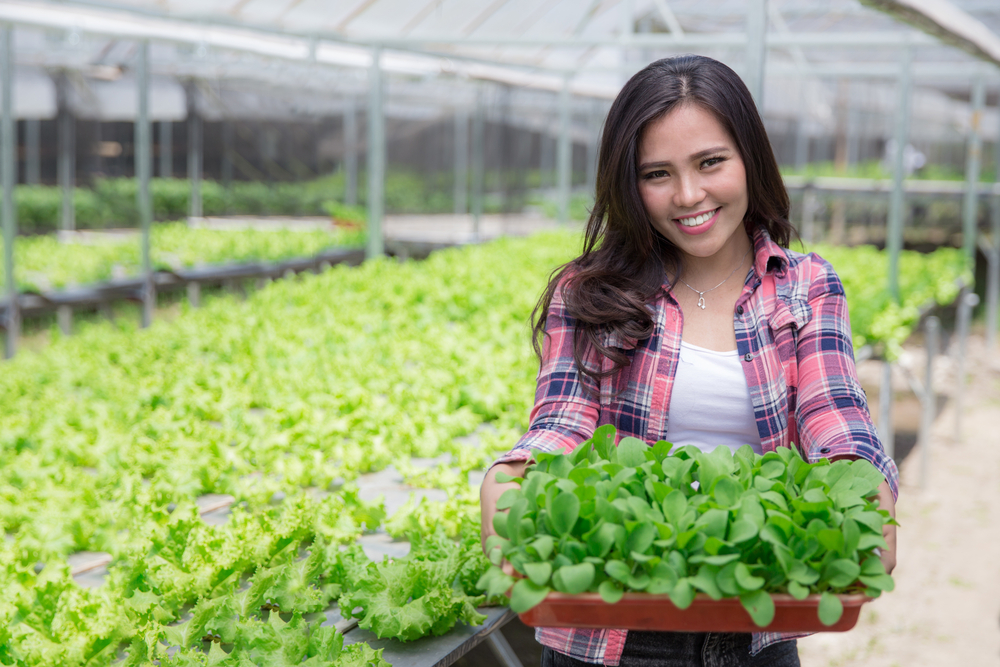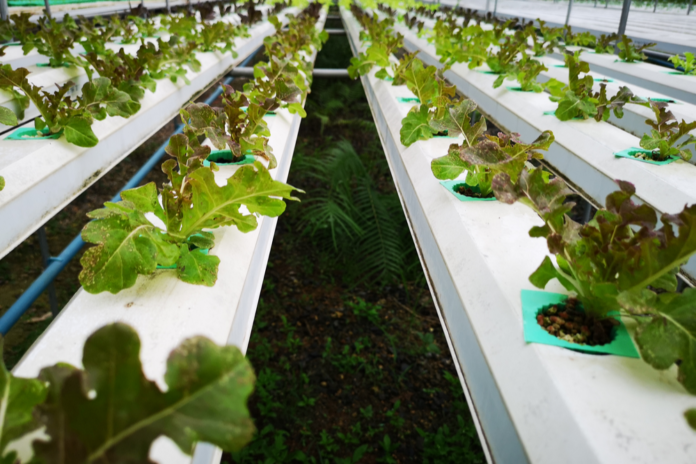The History of Hydroponics
Growing plants in water filled with nutrients is a cultivation method adopted by humans a long time ago. Hydroponics has been referenced in history as early as in the story of the famous Hanging Gardens of Babylon. Modern agri-prenures, scholars, and policy makers now recur to the idea of growing plants in a solution of nutrients and water in attempts to become food secure, generate income, and minimise the exploitation of finite resources. Farmers can cultivate plants using hydroponic methods either in the open or in a more controlled environment, like a greenhouse.
Although the initial investment is sometimes high, hydroponic vegetables grown in a greenhouse or similar controlled environment allows farmers to cultivate despite external climatic conditions. As such, hydroponic produce can be harvested year-round. This allows vegetable crops to be cultivated in originally thought impractical and inhospitable for agriculture, such as concrete cities, deserts, and space.

But the question still remains. “Are hydroponically grown produce healthy?” Well one way to answer this is to look at how the produce is cultivated. What are the common cultivation practices in hydroponics?
Agrochemicals have become an integral part of present-day farming and play a major role in increasing agricultural productivity. However, the indiscriminate and extensive use of these harmful chemicals has been attributed by many scholars and activists to represent a global major environmental and public health problem.
Crops cultivated under hydroponics cannot eliminate all threats posed by pests and disease, but it can reduce these threats exponentially.
How is Hydroponic Agriculture Healthy?
Most hydroponic cultivators use a protected structure which allows them to easily take control of most surrounding variables, many pests like snails, some birds, insects (thrips, aphids, worms, etc) and diseases like Fusarium, Pythium, and Rhizoctonia species are soil-borne. Growing vegetables in water reduces the risk of exposure to these dangers.

Hydroponic farmers are able to minimise the use of chemical agents to control the infestation of various pests and diseases.
Many argue that hydroponic produce can be more susceptible to pest and disease attacks as hydroponically grown plants are protected from external environment, so their resistance is much lower than plants grown in the soil. The pathogens in the complex soil environment can make some plants produce higher amounts of beneficial compounds.
However, the reality is that hydroponic farmers do not necessarily need to use chemical agents in their cultivation practice as long as efficient monitoring and proactive measures are used to minimize the risk of infestation incidence. At the beginning of an infestation, most hydroponic farmers would rely on environmentally friendly methods such as manually removing the pest or infected plants, using traps and spraying with a biological chemical agent like neem oil.
Harsh chemicals are only recommended to be used as a last resort, where the infestation level is so high that harsh treatment is required. Since hydroponic systems requires constant monitoring and supervision, this reduces the likelihood of pests and disease threats, which allows hydroponic farmers to avoid the use of harsh chemical control agents extensively unlike in soil cultivation.
This of course enables them to produce vegetables with minimal exposure to chemicals, making them healthier in the process.
Farmers don’t only use agro-chemicals to control insect and disease threats. Weeds often plague farmers gardens and often use a lot of resources, by which the farmers may not recognise any value. For example, weeds often take up farmers’ time, as they often cut, rake, till, plow and hoe from time to time. Because of this, farmers may opt to a less labour-intensive task, which includes the application of a weedicide to control the population.
The harmful effects of the health of both farmers and consumers is well-documented and correlates with other types of delayed toxicity such as reproductive effects, fetal damage, delayed neurologic manifestations and possible immunologic disorders. Many farmers have reported to have symptoms like muscle pains, muscle weakness and easy fatigability after the application of weedicides and pesticides in the field (Doull 1989); (Dich, et al. 1997); (Lu, Cosca and mundo 2010) and (JL 2017). Cultivating plants using hydroponic methods help to eliminate the use of weedicides in farming as it minimises the use of soil to grow plants. No soil, no weeds!
You may be interested in reading How Hydroponics Helps the Environment.
Mental Health and Hydroponics
Hydroponics is a stress-relieving hobby! Gardening on a whole is known to be a tonic for our physical and mental health. Hydroponics is a good solution for those who wish to grow plants and to get in touch with nature like in places in the city. Imagine you’re in the city, just returned to your apartment and tried after a long day at work, and the only thing you want is to wind-down and relax and play with your hydroponic garden, seeing all the colours and beauty of a small eco-system right out on your porch.

Imagine the smell the various aromas from your flowers grown on your living wall or coming home to wind-down and to make your favourite dish using tasty vegetables and herbs picked fresh from your hydroponic grow towers that is in your gallery. It is reasons like hydroponics can be useful to calm the ones mind and soul and keeping your mental health in check.
So, if you’re considering a safer produce, choose healthy hydroponics. The produce is less likely to be contaminated by pesticide residue as farmers as less inclined to spray which minimise many of their work hazards and the implications to their health.
Hydroponics produce can be as healthy as soil produce. However, whether a produce is healthy may not be due to the cultivation method but rather the various practices farmers employ to ensure their produce reaches the market and meets the perceived expectations.



















